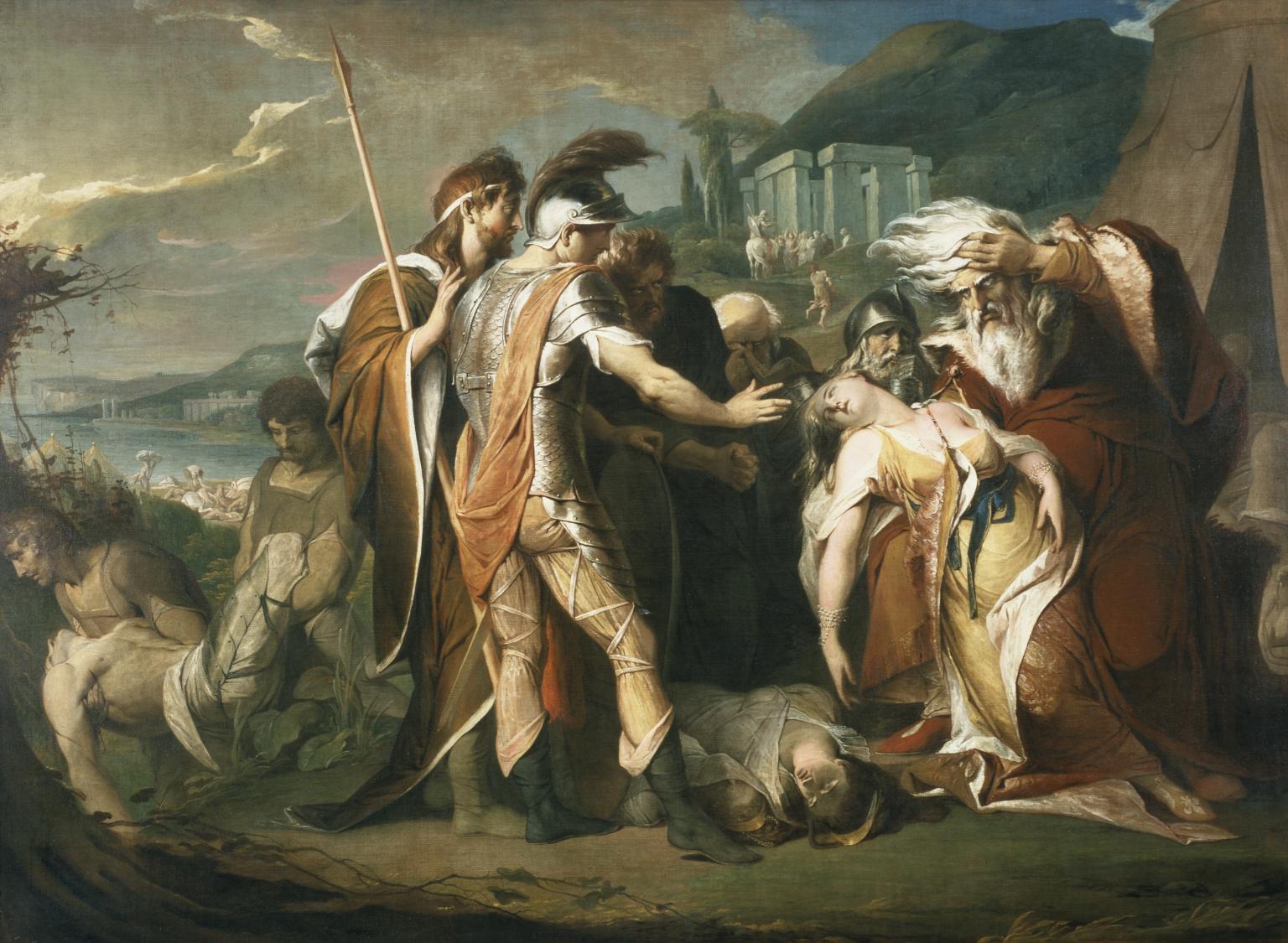Friday
My son Toby alerted me to a moving essay by the chair of Florida State’s English Department, who turned to Shakespeare to mourn the death of one of his students. After Maura Binkley and another woman were killed by an incel terrorist in a Tallahassee yoga studio, Gary Taylor found the language he needed in King Lear and Othello.
But not in Hamlet, as he explains:
Other Shakespeare scholars might be able to stand in front of a room full of traumatized students and quote Horatio’s response to the death of a young student named Hamlet: “Good night, sweet prince, and flights of angels sing thee to thy rest.” Other Shakespeare scholars might point out that, 400 years ago, the word “prince” was gender-neutral, and would therefore be perfectly appropriate for Maura Binkley. Other Shakespeare scholars might explain the traditional literary metaphor that equates death and sleep.
But although Shakespeare probably believed in angels, I do not.
I would argue that it’s not belief or non-belief in angels that makes the line inappropriate. Although the dying cancer patient in Margaret Edson’s play W;t does not appear religious, Vivian’s old teacher uses the line to powerful effect as she approaches her end. For souls like Vivian and Hamlet who are wracked with agonizing doubts, death may come as a final peace.
To capture our fury and bafflement at the death of a hopeful young college student, however, Taylor is right to cite Lear. The pounding use of “never” makes the passage one of the darkest in all of literature:
The Shakespeare quotation that first came to me, when I learned of Maura’s death, was something much more brutal: “Why should a dog, a horse, a rat have life / And thou no breath at all? Thou’lt come no more, / Never, never, never, never, never.” King Lear speaks these words to his young murdered daughter, half-pretending to himself that she can still hear him. These are not words that any parent wants to speak, or to hear at a moment like this.
Then Taylor goes in a direction I did not expect: he focuses on Cordelia’s killer, comparing him to the man who shot Maura. Both are in the grip of a toxic masculinity, prizing their manhood over the lives of women:
Father Lear also says, to his dead daughter Cordelia, “I killed the slave that was a-hanging thee.” Shakespeare does not name the murderer, and unlike the press I will not dignify or memorialize the man who murdered Maura by repeating his name, or rehearsing his pathetic biography.
But Shakespeare does tell us something useful about the kind of man capable of murdering Cordelia, or Maura. In Shakespeare the unnamed “captain” explains, in an earlier scene, “I cannot draw a cart, nor eat dried oats; if it be man’s work, I’ll do’t.” Killing an innocent and defenseless young woman is, for that nameless captain, what distinguishes him from a mere domesticated animal. It is what defines his manhood.
Such men, Taylor says, are at war with generalities. This is what the Tallahassee killer had in common with the Pittsburgh, Kentucky and Orlando killers:
Unfortunately, anybody who is paying attention knows men like this, men whose identity and self-importance depends on their capacity for violence. The man who is accused of killing Maura was one of them. The man accused of killing 11 people in a Pittsburgh synagogue was one of them. The man accused of killing a random black man and a random black woman in a Kentucky supermarket, the week before, was one of them. The man who killed 49 people in a gay nightclub in Orlando was one of them.
These men were all trying to kill generalities. The man who stands accused of murdering Maura was not seeing a luminous living individual; he was seeing a specimen of the category “woman,” a category he hated. From his perspective, the category “woman” owed him something, something he as a “man” was entitled to have. The category “woman” had no right to choose to refuse him. Before the gun killed Maura, the generalization did.
Literature, and especially Shakespeare, does not allow us to remain in the realm of generalities. Taylor points out that, in the major Maura had chosen, above all we value
writers capable of telling many different stories, populated by many varieties of being, articulated in a kaleidoscope of styles. It’s why I, personally, have always been most fascinated by playwrights, from Aeschylus to August Wilson: Dialogue releases us from the monologues of one mind, clan, tradition.
Adapting a passage from Othello, Taylor talks of Maura’s luminous living individuality, which the killer could not acknowledge. “There was a daily beauty in her life,” he writes, “that made his ugly.”
As English majors, he concludes, what we can do is
write about the particulars of her beautiful promise. What we can do, as Americans, is dedicate ourselves to erasing the ugliness that erased her.
Few of Shakespeare’s characters are empty abstractions. By reading him, we enter into our full humanity and push back against murderous ideology.
Further thought:
I don’t recognize the other Shakespeare passage that Taylor applies to Maura: “brave, bold, and kind.” Three heroines who are associated with one or more of these words are Hermia in A Midsummer Night’s Dream, Hermione in A Winter’s Tale, and Miranda in The Tempest. All three are bullied by dictatorial men.
Previous post on an incel killer:


